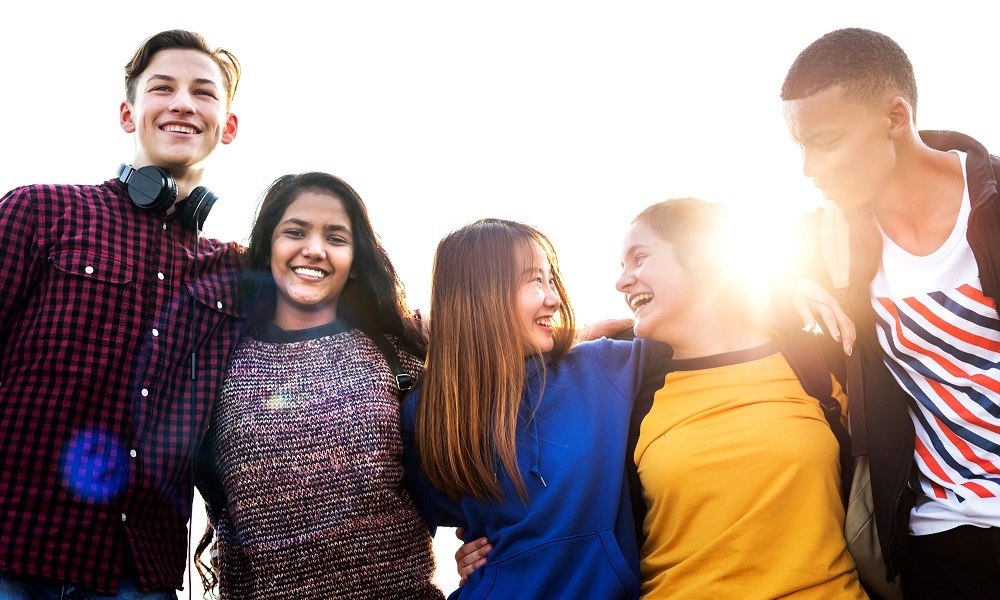Young people in Australia are becoming increasingly concerned about equity and discrimination, and remain affected by stress levels and mental health, a new report has found.
Released today, the annual Youth Survey Report from Mission Australia details findings from a survey of 25 800 young people aged between 15 and 19. Participants were asked about issues of personal concern, education and employment plans, and what they value most in their lives. For the first time in the survey’s history, respondents were also asked about their experiences with unfair treatment in the last 12 months.
Now in its 19th year, the survey’s responses comprised of 56.2 per cent female participants and 41.2 per cent male participants. Just over one in seven (15 per cent) were born overseas and one in five (19.9 per cent) speak a language other than English at home. A total of 1 129 respondents identified as Aboriginal and Torres Islander.
Responses were received from across the country between April and August, so it’s no surprise that a common concern about COVID-19 was also communicated by young people.
‘This year, we’re hearing loud and clear that our young people see discrimination as a major issue in Australia, and are very concerned about unfair treatment, with gender inequality being at the forefront of their concerns,’ James Toomey, Mission Australia CEO, says.
‘This has been a year like no other for our young people, punctuated by rapid change, numerous challenges and stressful situations.’
Issues of personal concern for young people in 2020
When asked to indicate how concerned they had been by a number of personal issues in the past year, three issues from a list of items emerged to be most concerning for young people. The top three issues which respondents say they were either ‘extremely’ or ‘very’ concerned about were:
- Coping with stress (42.5 per cent)
- Mental health (33.9 per cent)
- Body image (33 per cent)
Coping with stress is often listed as a top concern for young people participating in the Youth Survey, so for the first time, respondents in 2020 were asked to report on how often they have felt stressed in the past month. More than four in 10 (42.6 per cent) said they felt stressed all or most of the time, with double the proportion of females feeling this way compared to males. Almost four in 10 males, on the other hand, shared that they felt stressed a little of the time, or none of the time in the past month, compared to just 15.2 per cent of females.
In addition to this survey item, respondents were also asked to give a free-text response on what their biggest issue has been in the past 12 months. The top three biggest issues presented were:
- Education (34.2 per cent)
- Mental health (17.2 per cent)
- COVID-19 (9.3 per cent)
Unfair treatment based on gender and race
Respondents were also asked about what they see as the top three most important issues in Australia today. Four in 10 listed equity and discrimination and COVID-19 (40.2 per cent and 38.8 per cent respectively), and three in 10 identified mental health and the environment (30.6 per cent and 29.8 per cent respectively).
The percentage of respondents indicating equity and discrimination as an issue of national importance has risen from 25 per cent last year to 40 per cent this year. More than half reported that they had witnessed another person being treated unfairly in the past 12 months.
For the first time in the survey’s history, respondents revealed how they themselves have been unfairly treated. Analysis of responses found:
- 41 per cent reported being unfairly treated in the past year due to their gender, with 48 per cent of females citing this compared to 22.5 per cent of males.
- 30.4 per cent indicated unfair treatment due to their race/cultural background
- 26 per cent indicated unfair treatment due to their mental health
‘Introducing education initiatives into schools is also a critical mechanism for addressing the attitudes and behaviours of young people directly, and schools have a vital role to play in the elimination of discrimination and unfair treatment,’ the report reads.
Mental health and wellbeing
Participants also detailed how important certain aspects of their lives have been to them in the past year. The emerging picture from the results to this item in the survey show what young people are valuing most:
- Friendships: 82.5 per cent
- Family relationships: 78.9 per cent
- School or study satisfaction: 67.5 per cent
- Mental health: 65.9 per cent
- Physical health: 65.4 per cent
With over two-thirds of respondents in this survey item indicating their mental health has been important to them in the past year, and many other survey item responses pointing to mental health, it’s clear that this is a topic of concern for a vast majority of young people in Australia.
‘Additional funding and strategies are needed to improve the mental health and wellbeing of young Australians. This should include more age-appropriate prevention and early intervention mental health services for young people,’ Toomey says.
At Teacher, we have shared the stories of successful interventions in schools relating to student wellbeing and mental health. For instance, we shared news of a tool which can assess the effectiveness of whole-school mental health interventions and, most recently, the findings of a systematic review investigating the impact of wellbeing-related interventions.
There is also more work being done across the country. For example, The Association of Independent Schools of NSW (AISNSW) announced this month that they are implementing a two-year initiative to provide more school counsellors to work towards improving student wellbeing.
Education and employment
Just over 86 per cent of respondents indicated they were studying full-time, and while this is still the vast majority, this figure is down from 93 per cent in 2019.
Further insight into young people’s perspectives when it comes to their education and employment were revealed in the survey – 97.3 per cent say they intend to complete Year 12; 64.1 per cent plan to go to university; 10.2 per cent plan to go to TAFE; and 9.6 per cent plan to get an apprenticeship.
When it comes to employment, 29.9 per cent of respondents plan to get a job once they leave school. On what they believe will help them secure a job, 75 per cent cited flexible working hours, 58.7 per cent said having more jobs in their local area would be a reason, and 42.4 per cent cited work experience as a helpful factor.
Mission Australia say the findings of this survey can help inform school policies, services and programs going forward. They offer a number of recommendations, including: the development of a new National Anti-Racism Strategy; partnering with young people on anti-racism initiatives; putting young people at the centre of service design and development; and focusing on mental health prevention and early intervention measures.
The full report, Mission Australia Youth Survey 2020 is available on Mission Australia’s website.
Think about your school context. Do you have any support systems which directly address issues of equity and discrimination? How are you supporting students who are experiencing unfair treatment based on their gender, race, and/or mental health?



